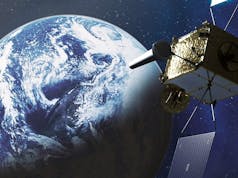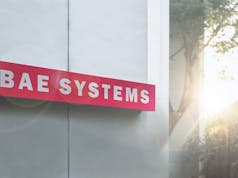In a bid to further the progress of space-based solar power, Lockheed Martin has announced a £150,000 investment in a project alongside Northumbria University during British Science Week.
The initiative is set to expedite the development of advanced photovoltaic cells capable of collecting and converting laser power into functional power for future space and lunar vehicles.
The project is perfectly aligned with this year’s British Science Week theme of ‘connection’, promising potential future applications such as consistent and clean energy delivery in any weather condition or time of day.
The technology in development aims to harness solar energy in space, potentially transmitting electricity wirelessly from space to Earth. This revolutionary concept could usher in a new source of zero-carbon power to connect homes and businesses without relying heavily on substantial land-based infrastructure.
Paul Livingston, Chief Executive of Lockheed Martin UK, commented on the partnership, stating, “Our collaboration with Northumbria University will advance the use of space-based solar power for satellites, space vehicles and potentially useable power back on earth. We are delighted to be helping grow the North East’s space economy and the overall industrial capacity and resilience of the UK’s space and manufacturing sectors.”
This partnership extends the established relationship between Lockheed Martin and Northumbria University, following years of successful experiments into laser-based systems. It is also a continuation of the partnership announced last year, which saw Lockheed Martin investing over £600,000 to aid the development of skills, research and technology across the North East.
John Woodward, Faculty Pro Vice-Chancellor for Engineering and Environment, Northumbria University, added, “Northumbria University is a UK front-runner in research into photovoltaics and solar energy and our reputation for world-leading research in space and satellite technologies has grown exponentially in recent years. This exciting project with Lockheed Martin combines these areas of excellence and will enable us to innovate further to find new ways to generate and store renewable energy.”
Lockheed Martin’s activities go beyond research and development. The company is a strategic partner to the UK Government, working closely with the UK Space Agency to conduct northern Europe’s first vertical satellite launch from the SaxaVord Spaceport in Shetland. It also delivers an extensive range of programmes for the Ministry of Defence.











